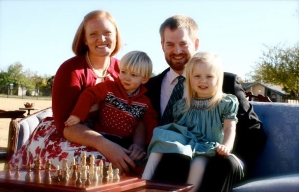
Samaritan's Purse American missionary doctor who contracted Ebola in Liberia released a statement on Friday in which he said he was "recovering in every way." While thanking God for sparing his life, he also expressed his hopes of being reunited with his family.
"There are still a few hurdles to clear before I can be discharged," Dr. Kent Brantly wrote in the statement, "but I hold on to the hope of a sweet reunion with my wife, children and family in the near future."
Brantly received an experimental treatment ZMapp before being flow to Emory University Hospital's isolation unit in Atlanta, Georgia, where he said he is receiving "compassionate, world-class care."
Moreover, the devout Christian doctor said that he is "more grateful every day to the Lord for sparing my life and continuing to heal my body."
"Thank you for your prayers for Nancy and me," he said in the statement. "Please continue to pray for us and bring attention to those suffering in the ongoing Ebola crisis in West Africa."
"This fight is far from over," he said in the statement.
Brantly, 33, had been serving as the medical director of the Ebola center run by Samaritan's Purse in Liberia's capital of Monrovia, where he first identified on himself potential symptoms of Ebola and proceeded to isolate himself until the test results came out.
Since March, over 1,000 people in four West African nations have died from Ebola. This most recent wave marks the worst outbreak since the virus was first reported in what is now the Democratic Republic of Congo in 1976.
The disease, which has a 90% mortality rate and has no known cure, is transmitted from wild animals including chimpanzees, gorillas and bats, according to the Geneva-based WHO. However, the risk of travelers contracting Ebola is considered low because it requires direct contact with bodily fluids or secretions such as urine, blood, sweat or saliva, experts say. Ebola can't be spread like flu through casual contact or breathing in the same air.
On Wednesday, Liberia has received the first doses of experimental Ebola drug, which would be used to treat two African doctors who had contracted the disease while treating patient, making them the first Africans to receive some of the scarce treatment in a spiraling outbreak.






